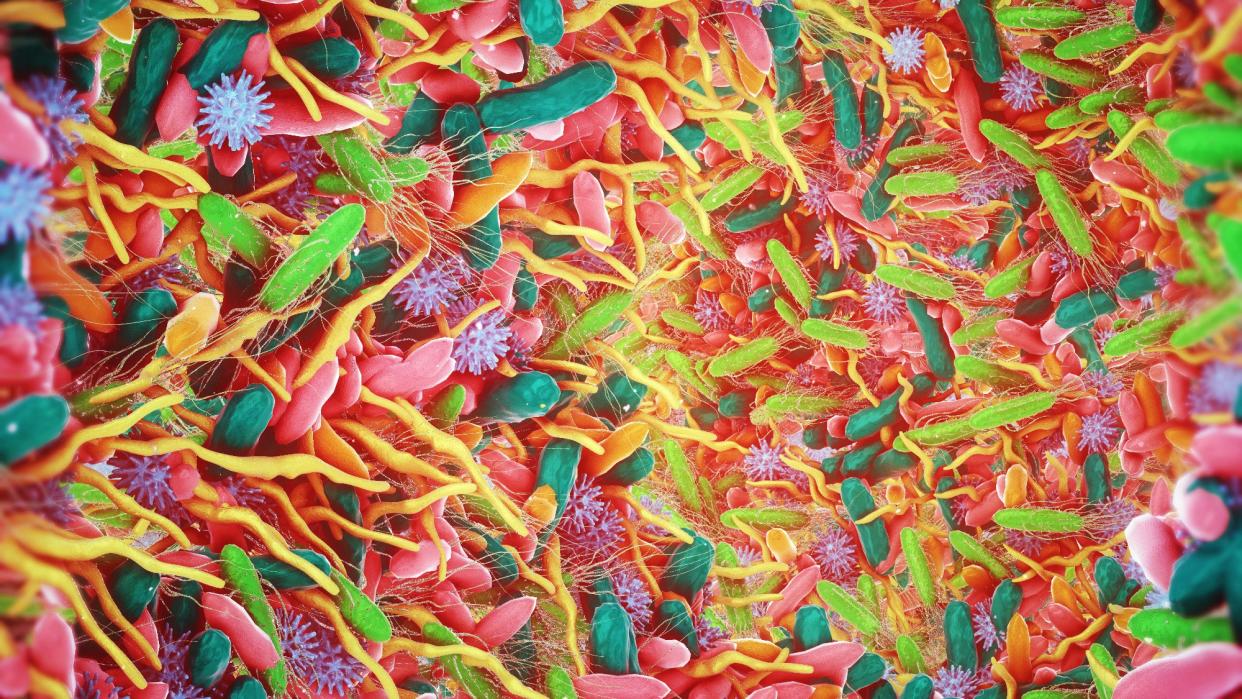What's the microbiome and why is it so important?

While humans are living organisms in their own right, the human body is also a thriving ecosystem for a number of bacteria, viruses and microbes. The human microbiome plays a vital role in our health, affecting the well-being of our immune and digestive systems, heart and brain. However, researchers are still learning about the range of influences the microbiome has on the human body.
What is the microbiome?
The microbiome is a "unique network of microbiota" — a bustling community of trillions of bacteria plus "fungi, parasites and viruses" — that's "originally determined by one's DNA," Harvard University's School of Public Health explained. For the most part, the microorganisms peacefully coexist, but the microbiome can run into problems if a person is suffering from an infectious disease, a dietary issue or environmental problems, or undergoes a long course of antibiotics. Microorganisms make up about 1% to 3% of our body mass, or the equivalent of 2 to 6 pounds of bacteria in a 200-pound adult.
Experts have long known about the benefits of the human microbiome, including producing certain vitamins we don't have the genes to make, helping break down food to extract nutrients, teaching our immune systems and producing compounds that fight off dangerous microbes. However, "the complex interplay between the trillions of microbes that inhabit our bodies and influence our health remains a biologic black box," according to Harvard Medical School.
Diet can play a large role in the microbiome. For example, "a high-fiber diet in particular affects the type and amount of microbiota in the intestines," wrote Harvard's School of Public Health. "Dietary fiber can only be broken down and fermented by enzymes from microbiota living in the colon," and that fermentation affects which microbes thrive or perish. When the gut microbiome is disturbed, it can affect our digestive system and how we break down food. This is why a long course of antibiotics can sometimes lead to temporary lactose intolerance.
Why is the microbiome important?
Understanding the microbiome can be crucial in expanding our knowledge of human health. "There are thousands of different bacteria, and even more unique small molecules that they produce," explained microbiologist Marco Jost of Harvard Medical School. "Each small molecule can, in principle, interact with lots of cell types in our bodies, and that triggers additional pathways that ultimately shape human biology."
Much research is being done regarding how the microbiome might both help fight disease as well as indicate the presence of disease. "An ever-growing number of studies have demonstrated that changes in the composition of our microbiomes correlate with numerous disease states, raising the possibility that manipulation of these communities could be used to treat disease," the National Institutes of Health (NIH) reported. Because the microbiome contains so many species of organisms and microbes, researching how it interacts with our bodies can prove to be challenging.
"Our main premise is that a lot of the effects of the microbiome on human health can be explained by small molecules from the microbiome acting at the level of human cell biology," Jost explained. "For example, through activating or inhibiting signaling pathways or by blocking certain chemical interactions." One of the biggest efforts to uncover the secrets of the microbiome is the Human Microbiome Project, whose mission is "generating resources that would enable the comprehensive characterization of the human microbiome and analysis of its role in human health and disease," the NIH wrote.
"The microbiome is essentially a window into new biology," Jost said, and it has "become clear that the microbiome is a global modulator of many aspects of human biology."

